Keywords: Serbia; government; EU; Aleksandar Vucic; Russia
New cabinet, again led by former hardline nationalist Vucic, marks a breakthrough for gay rights in the Balkans.
More...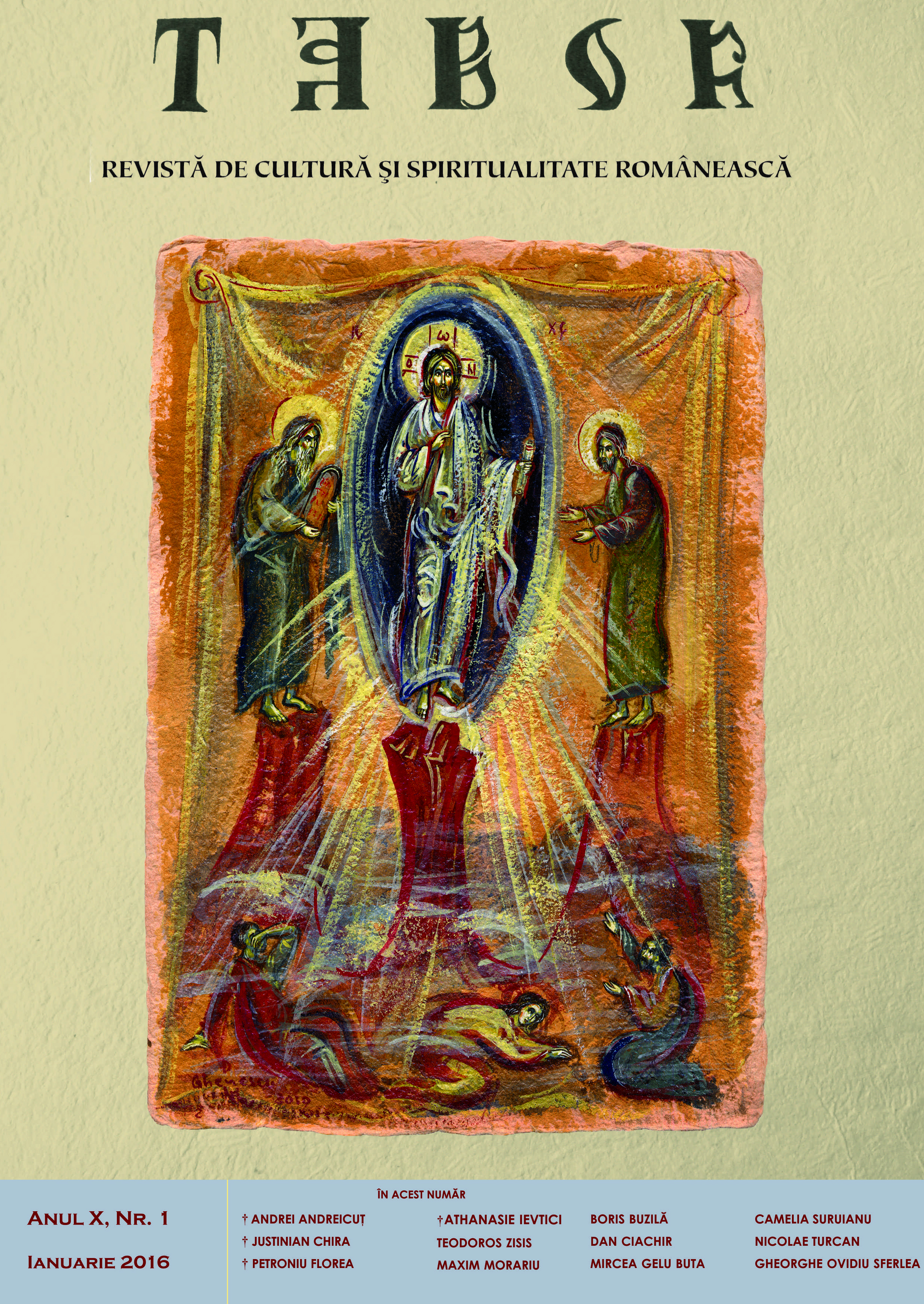
Keywords: monk; grace; elder Sophrony
Through repentance, prayer and the ascetic struggles of the monastic life, the Grace of the Holy Spirit distinguishes the monk in Grace. Such monks were Saint Silouan and his disciple and biographer Elder Sophrony. By the Grace of the Holy Spirit, believers are informed of the presence of God in their lives and advance in Christ. The monk tastes Grace. The taste of Grace, which in realized within the Church, cultivates a closer relationship with the living and true God, with the life-giving Trinity. The monk experiences the taste of divine Grace by his participation in the Divine Liturgy. Elder Sophrony shows in his works that people thirst for God and this is why they want to emerge from the constraints of time and space. Communion with God ushers man into divine eternity. In this way, new horizons are opened for human existence. If human life and, in particular, that of the monk, is not a life in Grace, i.e. the life of Christ Himself within us, then we are poor and naked. In order to keep man from aggrandizement, which displaces the Grace of God within him. He uses His withdrawal as a means of training. This lies close to the boundaries of despair, but is not the same as really being abandoned by our merciful God. It occurs so that our faith will become deeper, greater and firmer.
More...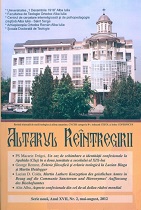
Keywords: God;Saint John Chrysostom;angel;life;priest;priesthood;monk;monasticism;
Among the most valuable works of Saint John Chrysostom are the treatise ,,On the Priesthood”, in which the author wishes to justify his escape before ordination. Saint John compares in his treaty the priestly life with the monastic one. Monks are those who live like angels, and the priests, who represents a heavenly reality, received apower that God hasn’t entrusted to the angels. The priesthood is a gift of God to which man can respond only by offering his whole person, thus becoming ,,Theophilus”, God bearer. Although, at first sight, Saint JohnChrysostom believes priesthood almost ,,more spiritual” than monastic life, however he has an enough important esteem for the ascetic life style of the monks which attracted at first and which guided his whole priestlyand episcopal life. In his sermons he recalls with pleasure the beautiful life of monks who have chosen to live in this world, life style of the angels, ,,sublime philosophy”.
More...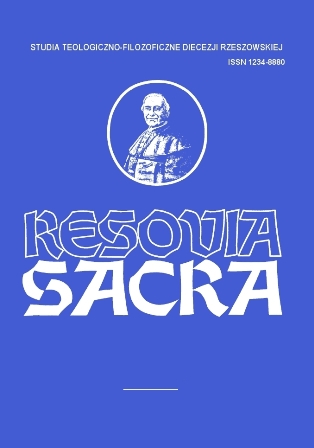
Rostowski zaliczany jest do świętych kościoła prawosławnego i pamięta się go dzisiaj głównie ze względu na jego monumentalne Żywoty świętych. W swych pismach Rostowski pragnął ograniczyć się do przedstawienia tradycyjnych dogmatów kościoła prawosławnego, nie zamierzając wprowadzać nowych elementów wiary. Jego zdaniem dusza dzieli się na trzy elementy: umysł, serce i wolę, co prowadzi do dyskusji o zależności między wiarą a wiedzą. Rostowski uważał świat za bezwartościowy i nakłaniał wiernych do odwrócenia się od niego, gdyż każdy objaw zainteresowania światem oznacza odwrócenie się od Boga. Wierni powinni płakać dzień i noc nad własnymi grzechami; powinni nawet unikać śmiechu, gdyż zabija on pamięć o śmierci i o sądzie ostatecznym. Podziwianie piękna jest również zabronione. To zainteresowanie śmiercią prowadzi do szczegółowego opisu piekła i nieba. Rostowski uważał, że wszystko w Biblii powinno być traktowane metaforycznie, nawet najzwyklejsze wydarzenia życia codziennego, co prowadziło go czasem do wątpliwej wartości interpretacji. Dużo uwagi poświęcił krytyce schizmatyków, jednakże teologia stanowi niewielki tylko wycinek tej krytyki, większość uwagi poświęcona jest kwestiom rytualnym, takim jak sposób żegnania się, kształt krzyża czy wiek ikon.
More...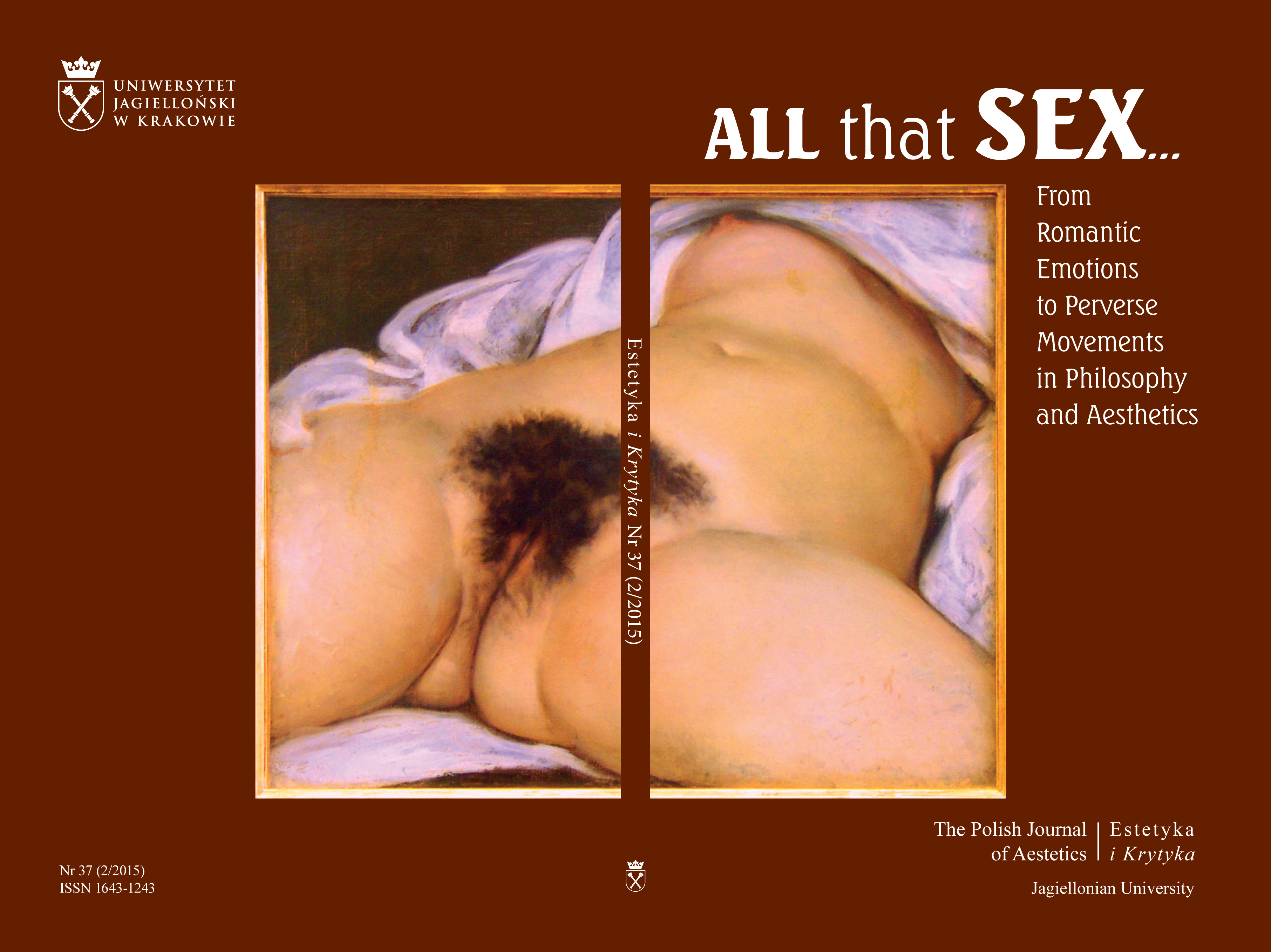
Keywords: sexuality;carnality;desire;love;Greek tragedy;European culture
The eighteenth‑century English writer matthew Gregory Lewis wrote one of the most dramatic Gothic novels, The Monk; over 200 years later, a film of the same name appeared, based on the novel and directed by dominik Moll. The film, a free adaptation of the book, presenting the story of the moral downfall of the monk Ambrosio, has inspired us to philosophical re‑flections on sexuality, carnality and physical desire. In the context of these issues we have attempted to analyse and interpret this cinematic work of art. The method we have adopted is based on a thorough discussion on the topics developed in the film and related issues. This method, while not pre‑tending to scientific objectivity, enables us to outline an interesting field of research as well as to identify a number of theoretical problems and ques‑tions which remain open.The formula we have adopted is to quote lines from the film The Monk which permit the analysis of selected issues related to sexuality, carnality and physical desire. Moreover, these quotes serve to order the text and en‑able the precise identification of interpretive trains of thought.
More...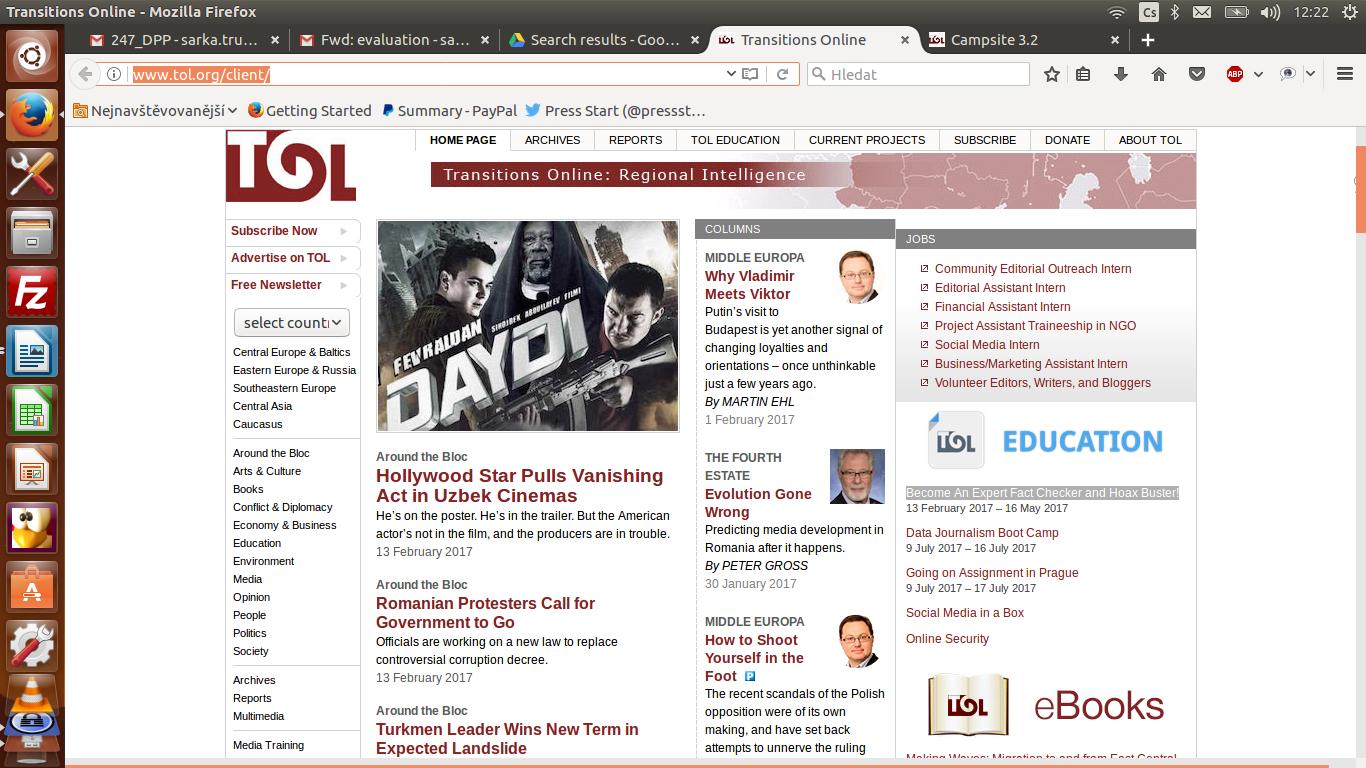
Keywords: Navalny; conviction; Putin; election; corruption; European; court
Putin’s only serious challenger may be forced to sit out next year’s presidential election.
More...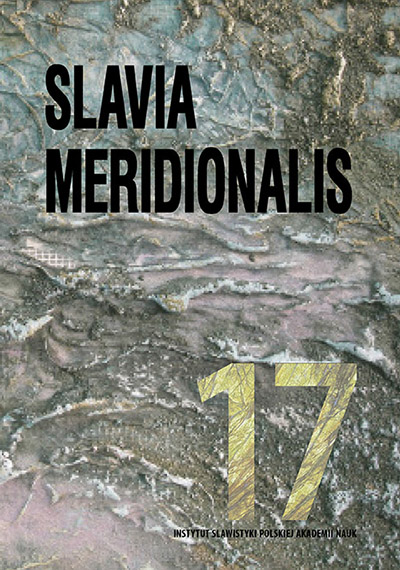
Keywords: Bulgaria; Serbia; Orthodox Christianity; Enlightenment; networking
Partenij Pavlovič was a Bulgarian monk (ca. 1700–1760) who spent his entire active life in the service of the Serbian Orthodox Churches of Pec and Karlovci. He used the intellectual network created by the ecclesiastical structures and to some extent also created a personal network that helped him spread the anti-Muslim and anti-Catholic ideas the Orthodox church at that time stood for. As such, he is to a much lesser extent than is often assumed a forerunner of Balkan Enlightenment but appears to be strongly rooted in a rather medieval perception of the world.
More...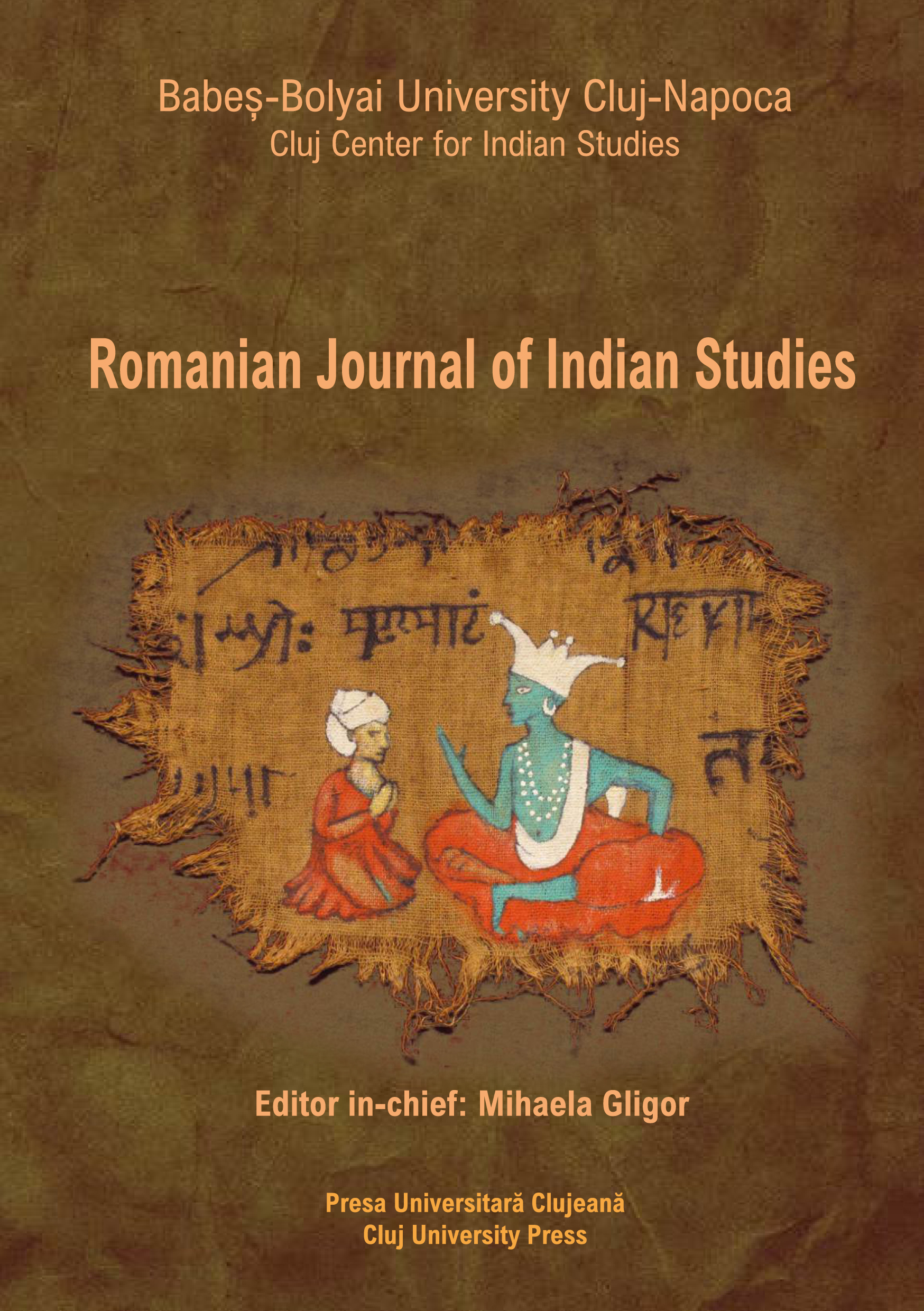
Keywords: review
review
More...Keywords: late Tantric Buddhism/Vajrayāna; initiation; Mahāpratisarā;
In this article I am discussing some polemical passages in Tantric Buddhist works belonging to the 10th–13th centuries concerning the infringement of vows of celibacy when monks took initiation containing sexual elements. The passages follow the standard exegetical format of first presenting argumentation (yukti) followed by scriptural citations (āgama) purportedly supporting the position of the author. Whereas the argumentation part has been discussed in previous works by others, here I wish to draw attention to the scriptural matter used in justification. In our case nearly always the same quotation is used in a distorted manner. This is a sign that those in favor of justifying transgression of monastic rules were struggling to find appropriate substantiation. From this one could infer that the rites demanding such infringements in the case of a monastic person were most likely developments outside that community, and hence the origins of such innovations should be sought after among lay tantrics.
More...
Keywords: Romania; economy; business; wages; spending; cuts
Government says no end to austerity-busting course despite warnings of an overheating economy.
More...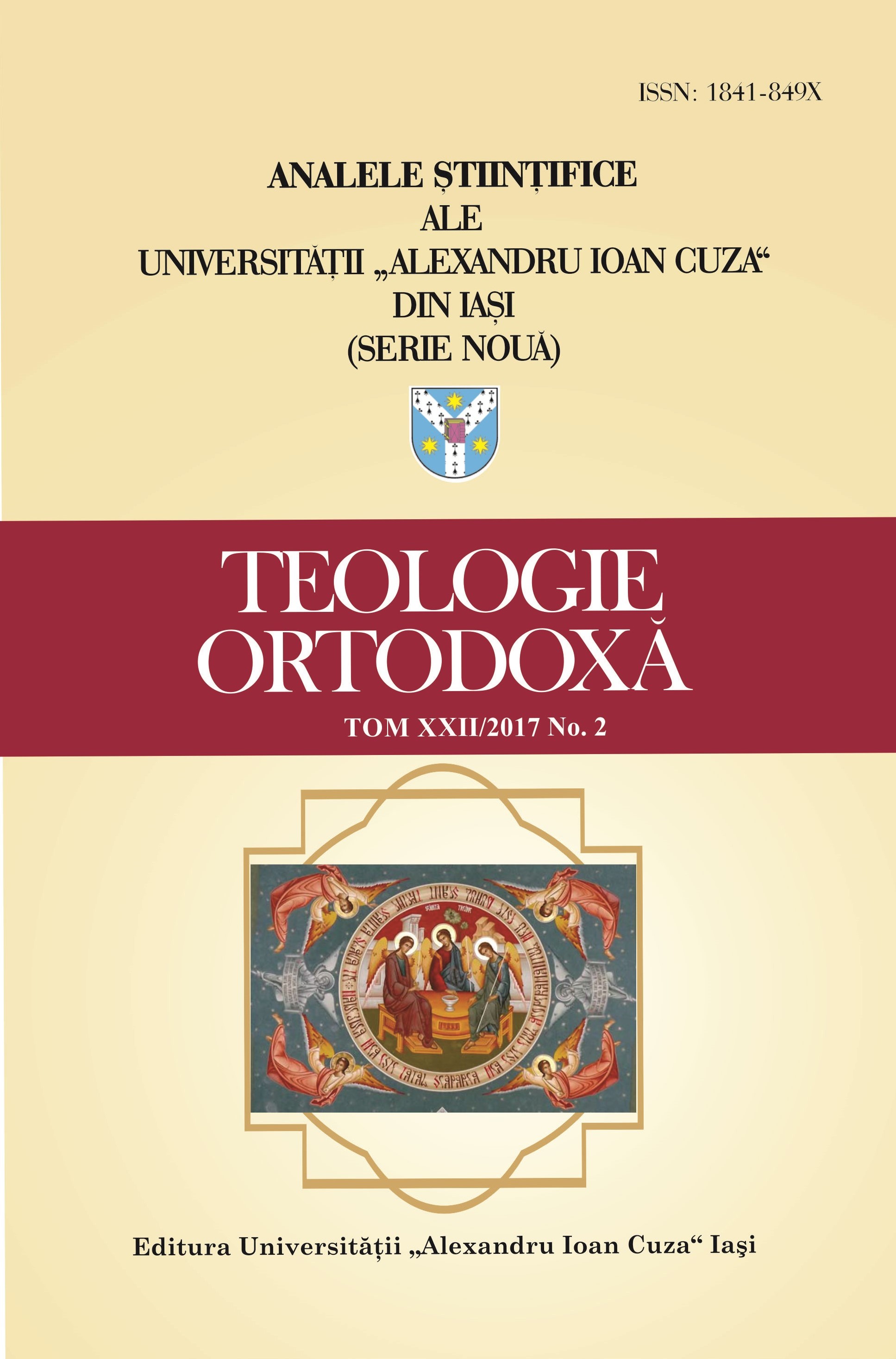
Keywords: archimandrite; monastery; scholar monk; religious work; abbot; moral teaching; spiritual school
One of the cultivated personalities from the XVIIIth century Moldavia was the Archimandrite of Putna, Vartolomei Mӑzӑreanu. Ever since his childhood, he entered in the Monastery of Putna and received education at the school which was operating next to the monastic settlement. As he was leading a clean life, inclined to prayer and study, the Metropolitan of that time, Iacov Putneanul, recommended Mӑzӑreanu, between 1757 and 1763, to take care of the Monastery of Putna as its abbot. Metropolitan Iacov Putneanul established a superior spiritual school at Putna meant to meet the spiritual needs of the time, and the organization of this school was in Vartolomei Mӑzӑreanu’s responsibility, who, by some sources, followed the model of the Theological Academy from Kiev. During this period of time, Archimandrite V. Mӑzӑreanu took care of the school of that place, both of its construction and the good course of its activity. It is notorious that he also consolidated the library of the theological school from the monastery, which consisted mainly of valuable manuscripts of the old copyists. In this way, there were preserved, until today, holy books, beautifully adorned, tied and maintained with appreciation.
More...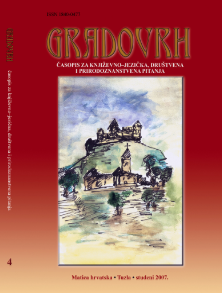
Keywords: west; east; christianity; islam; globalisation;
This paper will discuss oppositions between West and East as well as the discontinued dialogue between the two civilizations, particularly after the latest terrorist actions. The logic of stereotype thinking of both sides contributes to this gap widening: Edward Said’s story on “western colonialism” and conscious western manipulation with the picture of oriental world” as well as Peter Bernard Louis’ consideration that non-existence of “functional democracy” in Islamic society to these days is not incidental The image of the Other in this context by adding negative accusing tones hastily turns into image of the enemy. Such proclamation is a dangerous social occurrence leading the mass to believe that the others are really hostile. In fact this concerns erroneous image about the Others, perverse reaction of separate trends in Islamic world over Western world as well as such terrors that Western “democracy” imposes over Islamic world. The dialogue between cultures might be possible if Basam Tibi’s massage is heard, that is, “Islam must recognize secular values of Western modernity”, but the “West must acknowledge equality between religions”. However, this is not sufficient to avoid the new type of terrorist war between “crusaders” from Occident and “jihaders” from Orient. Their conflicts are unavoidably connected with the process of globalisation and Hard and Negri’s concept of a new Empire.
More...Review of: Ray Monk: Úděl génia, Hynek, Praha 1996, 636 s.
More...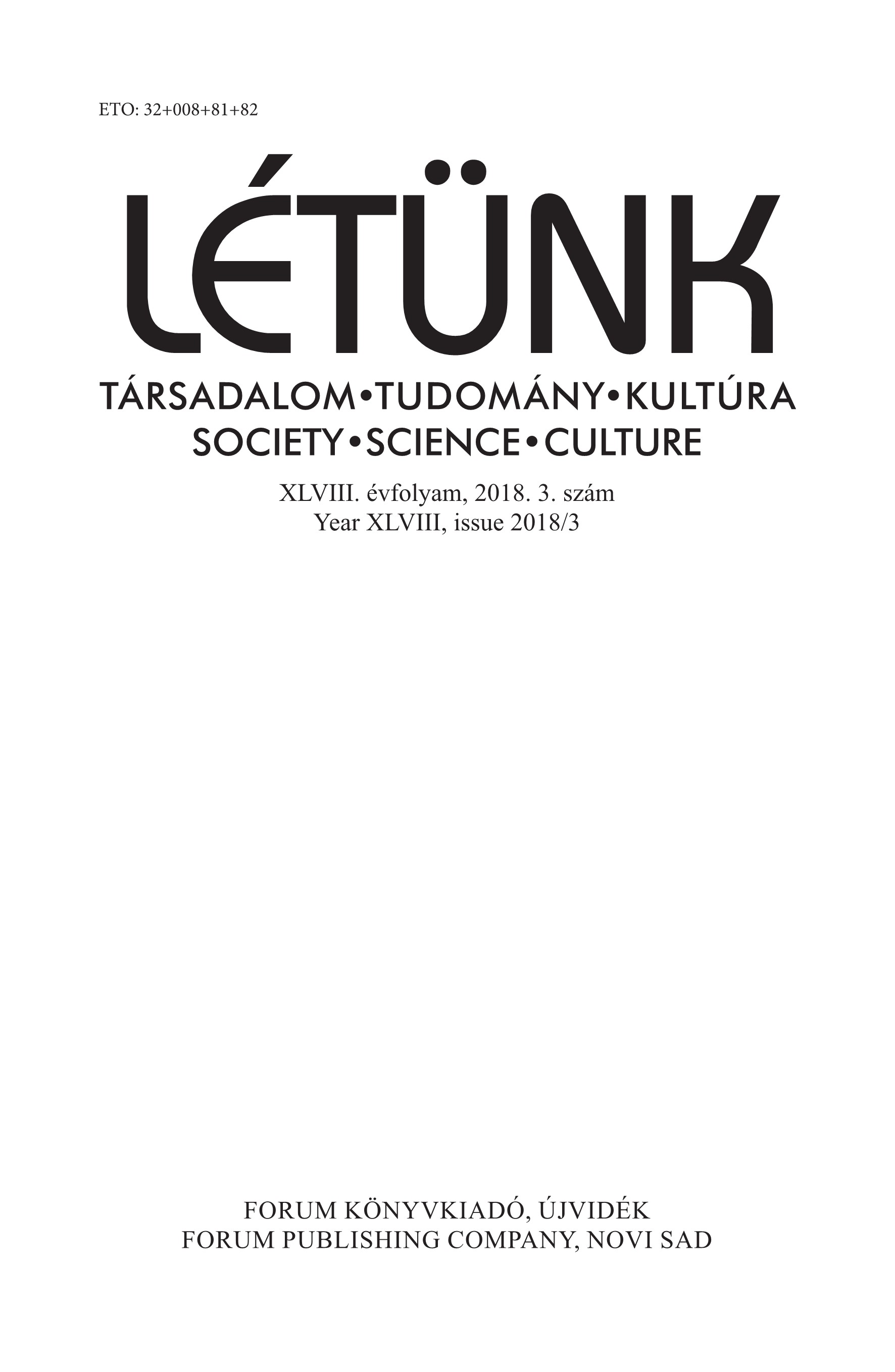
Keywords: folk religiousness; customs of commitment; West Bácska
The lives of people, farmers and stock breeders, the inhabitants of West Bácska, as well as their cattle and crops in our lowland climate, have always been in close connection with unstable weather conditions and infectious diseases, which have often spread among the inhabitants of this region. In order to avoid these disorders or troubles, people in those times sought help using well-known religious actions: vows to the supreme powers. Their knowledge about the changes in everyday life and their connection with religious traditions were so deeply rooted in their lives, that communities, inhabitants of entire villages, members of various ethnic groups swore to respect the specific saints or days of the year, in order to prevent disasters by taking dedicated vows. Thus, from the end of the 17th century, in the ethnically heterogeneous West Bácska almost every village developed various customs od commitment: protective procession, non-working days, strict fasting, worship services, apotropaic prayers, etc.
More...
Keywords: Sandu Tudor; Alexandru Teodorescu; Monk Agaton; Christian mission; The Burning Bush;
Very few historical moments are inevitable. However, the generalized war that shook the foundations of Europe again, represented, apparently paradoxically, the favorable context for some people to fully realize that everyday experience – regardless of the rhythm of their lives – only makes sense if it shapes them spiritually. Among them was also Sandu Tudor, who, at the end of the Second World War, sharpened his need to consolidate the contents of the assimilated orthodox mystical tradition, which was, in his vision, an efficient way of preserving humanity. It is well-known that the proclamation of the Romanian communist state was equivalent to the introduction of the new wave of repression against the Orthodox believers and, in particular, the mystics, so that in 1948 it resulted in the arrest of many members of the Rugul Aprins (The Burning Bush), especially among the students. In these circumstances, wishing to keep them from the roll of the anticipated communist oppression, Patriarch Justinian ordered, after 1948, the removal of Fathers Benedict Ghiuș, Sofian Boghiu and Arsenie Papacioc, but also of the founder of the Rugul Aprins – Sandu Tudor, a fact which did not escaped the watchful eye of the Securitatea (Security). In this context, as the world became more and more feared because the atheist communist offensive against the Church slowly became visible, Monk Agaton Tudor, becoming the abbot of the Crasna Monastery, continued his spiritual mission, credibly pleading (hence the popularity) for a doctrine other than the accepted one (communist ideology).
More...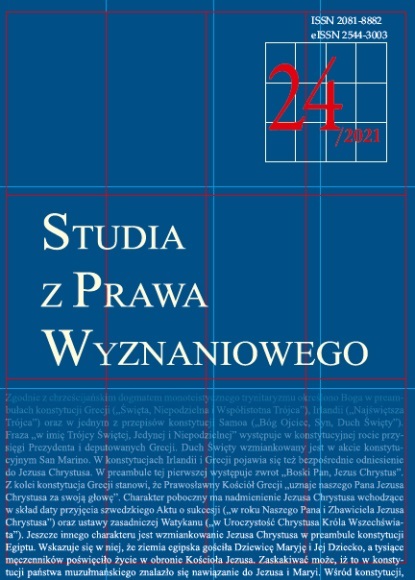
Keywords: zakonnik; prawo kanoniczne; zrzeczenie się dóbr; profesja zakonna; prawo cywilne;monk; canon law; renunciation of property; monastic profession; civil law
Until now, no attempts have been made in the literature to examine profession of poverty in the light of civil law. However, there is no doubt that ignoring the civil law effects of vows of poverty does not correspond to the importance of this institution. The Church legislator clearly obliged – albeit “as far as possible” – professed monks and possibly also (implicitly) religious institutes to ensure that perpetual vows of poverty have the intended effects also under civil law. Therefore, in accordance with the logic of canon law, it would be optimal if the renounciation of goods by a monk as a consequence of profession has effects also under Polish civil law. However, as Polish law does not have an institution corresponding to the canonical renunciation of goods, it remains to seek comparable institutions which would (even partially) produce the effect intended by the Church legislator, and the most useful instrument to achieve this objective can undoubtedly be a gift deed. In an era of wide participation of ecclesiastical legal persons as well as priests and religious persons in legal relations, this problem has in any case become of great practical importance. It is therefore fully justified and necessary to continue research in this direction, and it is hoped that the essential problems delineated in the present paper will help provide avenues for further explorations.
More...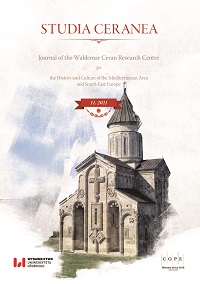
Keywords: George the Monk; universal chronicle; Brahmans; barbarian populations
In Book I of George the Monk’s Chronicle we read a long chapter dedicated to Alexander the Great, which includes an extensive section on his encounter with the Brahmans and the description of their customs. In particular, George the Monk follows the first part of the treatise De Gentibus Indiae et Bragmanibus by Palladius, of which he provides almost verbatim excerpts. Thereafter, we find an ethnographic section devoted to the customs of the Seres, the Bactrians, the Chaldeans, the Gelae, the Britons, and the Amazons. The aim of this study, therefore, is to explore the reception of Greek ethnographic literature in the erudite compilation of George the Monk.
More...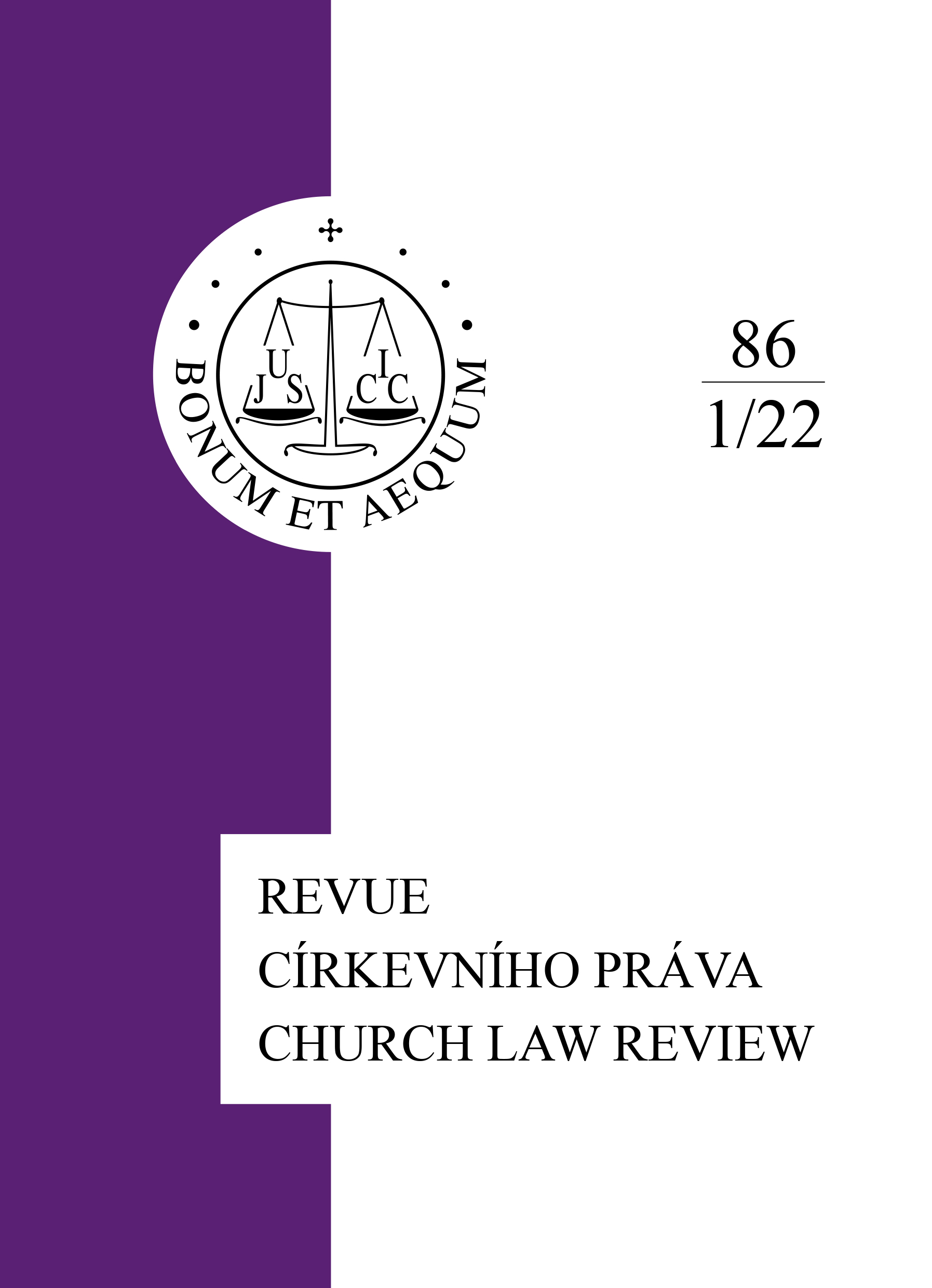
Keywords: Roman law; unilateral vows; votum; devotio; consecratio; pollicitati
The article is focused on the issue of unilateral vows in ancient Rome, their nature and binding force. Attention is paid to public religious vows, whether made for the good of the Roman state or later the emperor (vota publica). In this context, their special forms are also mentioned, such as evocatio, consecratio and especially devotio. Private religious vows (vota privata) are not omitted. The second type of promises was pollicitatio – private promises in favour of the municipality, the aim of which was initially exclusively to obtain a local office, later they were made in reaction to consequences of the natural disaster. From the legal point of view, such unilateral promises are among the contracts arising as if from the contract (quasi- -contracts) and were enforceable only within the imperial process (cognitio extra ordinem).
More...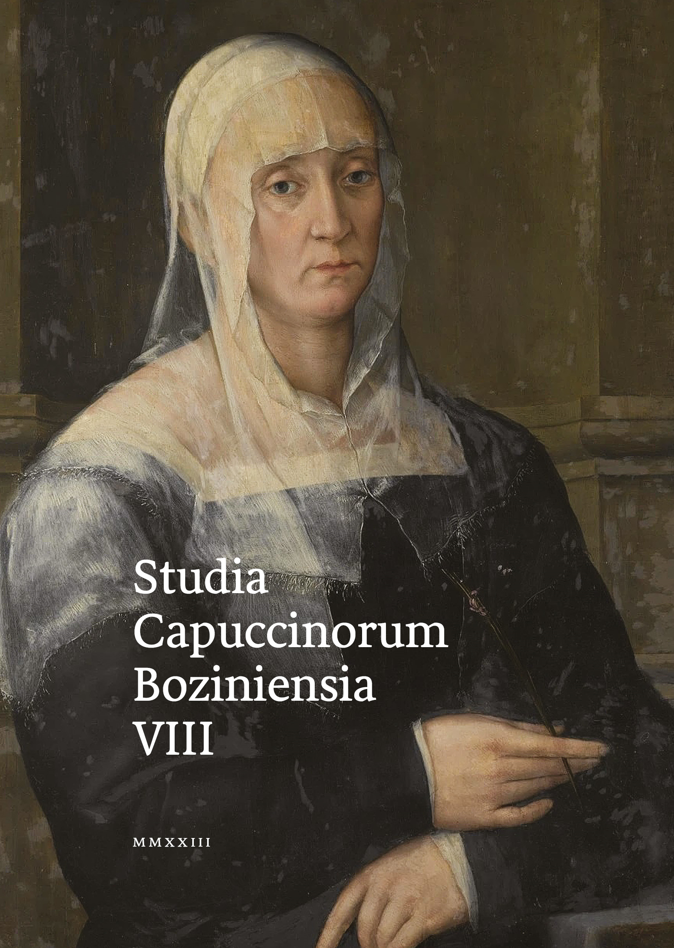
Keywords: vows;Bible;Deuteronomy
It is impossible to find explicit treaties on the vows, in their meaning of evangelical counsels, in the Bible as such. But we do find some mentions in the contexts that are very important in their applications on the vows (evangelical counsels) in the sense of their right and fructuous living and observing. One such context is Deuteronomy 12, significant chapter in the Bible, which opens Deuteronomic Code (12 – 26). Especially verses 12,2-3 are of a particular contribution because of their position, the context already mentioned, and interesting poetic composition. Verses Dt 12,2-3 are composed in ten poetic lines, in which we may find very strong emphasise on pivotal presupposition, which enables good and fructuous living of evangelical counsels.
More...